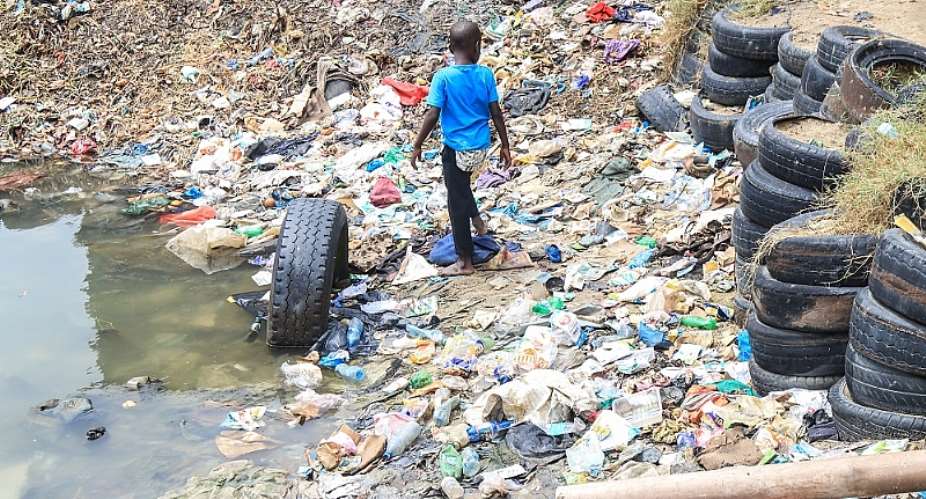Over the past 3 days, a report published by The New York Times has created buzz about an industry group representing the world’s largest fossil fuel companies and chemical makers allegedly set to spell doom into Kenya’s continuing efforts to end plastic pollution.
The Director of Sustainable Inclusive Business (KEPSA Foundation), Karin Boomsma, says that if this would be true, the move will reverse all the gains the country has made to have a plastic-free environment, including the 2017 ban on plastic bags.
“We have laws and regulations in Kenya that we can’t just dispute. The country, through the Ministry of Environment, has made major strides to drive Circular Economy in Kenya. We will protect what we have worked for over the years,” says Boomsma, who is also a Circular Economy lobbyist.
In 2019, Kenya joined other nations across the world in signing a global agreement to stop importing plastic waste — a pact that will be reversed if we are made to continue importing foreign plastic waste that would add to inorganic garbage. This comes at a time when the country is still struggling with the implications of the Covid-19 pandemic, including accelerated consumption of single-use and personal care products.
In June 2020, Kenya effected yet another revolutionary ban on single use plastics in all Kenya’s protected areas including its beaches, national parks, conservation areas, and forests. A Trend Report published in June by the Sustainable Inclusive Business indicates an 80% success rate and reduced polythene bags along Kenya’s coastline, parks and drainages; especially due to the stringent penalties put in place.
“Kenya doesn’t have the capacity to deal with these end of life plastics. The real impact of the circular economy doesn’t lie in trying to recycle end of life plastics. It lies in redesigning the quality of the product that will then define the quality of output that can be reintroduced back into the value chain,” adds Boomsma.
Sustainable Inclusive Business under the KEPSA Foundation is a change agent championing for a swift shift towards circular economy in Kenya and pledges to continue advocating for the complete elimination of plastic waste from the environment. The organization, in collaboration with the Kenya Association of Manufacturers (KAM), is already in the process of developing a business model for a Producer Responsibility Organization (PRO) as proposed by the Environmental Management and Co-ordination (Extended Producer Responsibility) Regulations 2020. The process is supported by the Netherlands Enterprise Agency (RVO) through the Embassy of the Kingdom of the Netherlands in Kenya.
Once complete, the PRO is expected to increase Kenyan companies’ capacity to take responsibility for plastic waste; and ensure plastics are collected, sorted and recycled after use. Producers in the country will bear significant responsibility for the post-consumer phase of single-use goods under an Extended Producer Responsibility (EPR) scheme. This will also include financial responsibility, such as the cost of disposing and or recycling post-consumer goods; in a bid to encourage proper waste management practices among Kenyan businesses.
“The EPR will push producers to rethink and redesign the quality of plastics to what we can reuse and recycle. Behavior change won’t happen by forwarding problems but by working together to keep materials in the value chain,” reiterates Boomsma.
Furthermore, The Kenya Plastics Pact, a proposed network of Kenyan organizations based on a common vision; is under development in the country. It will focus on collection targets, redesigning products and ensuring behavior change to support implementation of policy and other initiatives to accelerate the transition towards a circular economy and close the plastic loop in Kenya.
In conclusion, it remains our strongest belief that no outside forces should trample down on such legitimately attained milestones. The private sector will remain steadfast in supporting the Kenyan government in protecting these gains that we have achieved over the years.
About Sustainable Inclusive Business
Sustainable Inclusive Business – Kenya is a project, funded by the Netherlands Government and hosted by the Kenya Private Sector Alliance (KEPSA) under its Foundation. The project’s objective is to encourage businesses to be sustainable and inclusive with a positive impact on People, Planet and Profit. This is achieved through sharing information on best practices and viable sustainable business models, implementation of sustainable business policies as well as creating partnerships.





 Saglemi Housing Project will not be left to rot – Kojo Oppong Nkrumah
Saglemi Housing Project will not be left to rot – Kojo Oppong Nkrumah
 Transport fares hike: GPRTU issue two-day ultimatum
Transport fares hike: GPRTU issue two-day ultimatum
 ARC endorses Alan as presidential candidate – Buaben Asamoa
ARC endorses Alan as presidential candidate – Buaben Asamoa
 Akufo-Addo appoints Kwasi Agyei as new Controller and Accountant-General
Akufo-Addo appoints Kwasi Agyei as new Controller and Accountant-General
 PNC dismiss reports of mass resignations
PNC dismiss reports of mass resignations
 PAC advocates for revenue collectors to be engaged on commission basis, not full...
PAC advocates for revenue collectors to be engaged on commission basis, not full...
 Genser Energy commissions 110km of natural gas pipeline at Anwomaso
Genser Energy commissions 110km of natural gas pipeline at Anwomaso
 Naa Torshie calls for tolerance, peace ahead of 2024 election
Naa Torshie calls for tolerance, peace ahead of 2024 election
 Asantehene commends Matthew Opoku Prempeh for conceiving GENSER Kumasi Pipeline ...
Asantehene commends Matthew Opoku Prempeh for conceiving GENSER Kumasi Pipeline ...
 Let’s do away with ‘slash and burn politics’ in Ghana — Dr Adutwum
Let’s do away with ‘slash and burn politics’ in Ghana — Dr Adutwum
